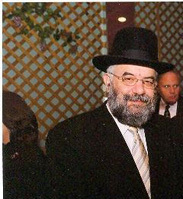Personal reflections on Passover
In Judaism there is a healthy tension between the individual and the nation as a whole. There are times when our focus is inward toward our own development and goals, and other times when we are expected to marginalize our own individual efforts in deference to the greater national unit. This duality is evident in Pesach, and particularly the Seder night.
Our Exodus from Egypt and the subsequent experience at Sinai was the Genesis of the Jewish people as a national entity. Our nation was formed though theses seminal experiences that made an impression on the entire Jewish identity, which continues to echo through all generations. The rabbis compare the time spent in Egypt to that of an embryo in the mother’s womb. The Jewish people were being formed through their experiences in Egypt moving slowly towards ‘birth’ as a full fledged people of god. The experiences of the exodus from Egypt must forever remain a foundation of our belief and identity.
We also find that the experience of the Seder is meant to be very personal. When God took us out of Egypt, he revealed himself through numerous miracles. One of the main commandments of the night is the reading of the Haggadah, which invites us to discussion and even to relive theses experiences, and tells us that every person must feel as if they personally were taken out of Egypt. As well as a national experience, it was a personal experience for each Jew. We must each have our personal connection with god that we celebrate on the Seder night. God dealt with us in a way that was above the natural order that we experience on a day-to-day basis. This was the level of the Exodus and this is the level we strive to experience personally at the Seder.
This is the reason that the ‘Wicked Son’ is answered so harshly when he uses the wrong pronoun. The ‘Wicked Son’ says that the Mitzvos that being fulfilled at the seder are “yours” removing himself from the experience. He does not feel a personal connection to G-d at all. He has missed this vital aspect of the Seder.
There is a custom to read Shir Hashirim (Song of Songs), a love song between Hashem and the Jewish people, after the Seder is complete. The goal of this custom is for each of us to feel our own intense personal intimate connection with Hashem at the close of the Seder. That is the level we are looking to reach by the night’s end. We try to relive the revelation of god that we have experienced in a personal way.
As we experience the excitement of the Seder, let’s take a moment to reflect on the enormity of the impact that the Exodus has had on our people and on our own personal connection to god. Let’s be sure to take these vital elements from the Seder as we move forward towards the acceptance of the Torah.






